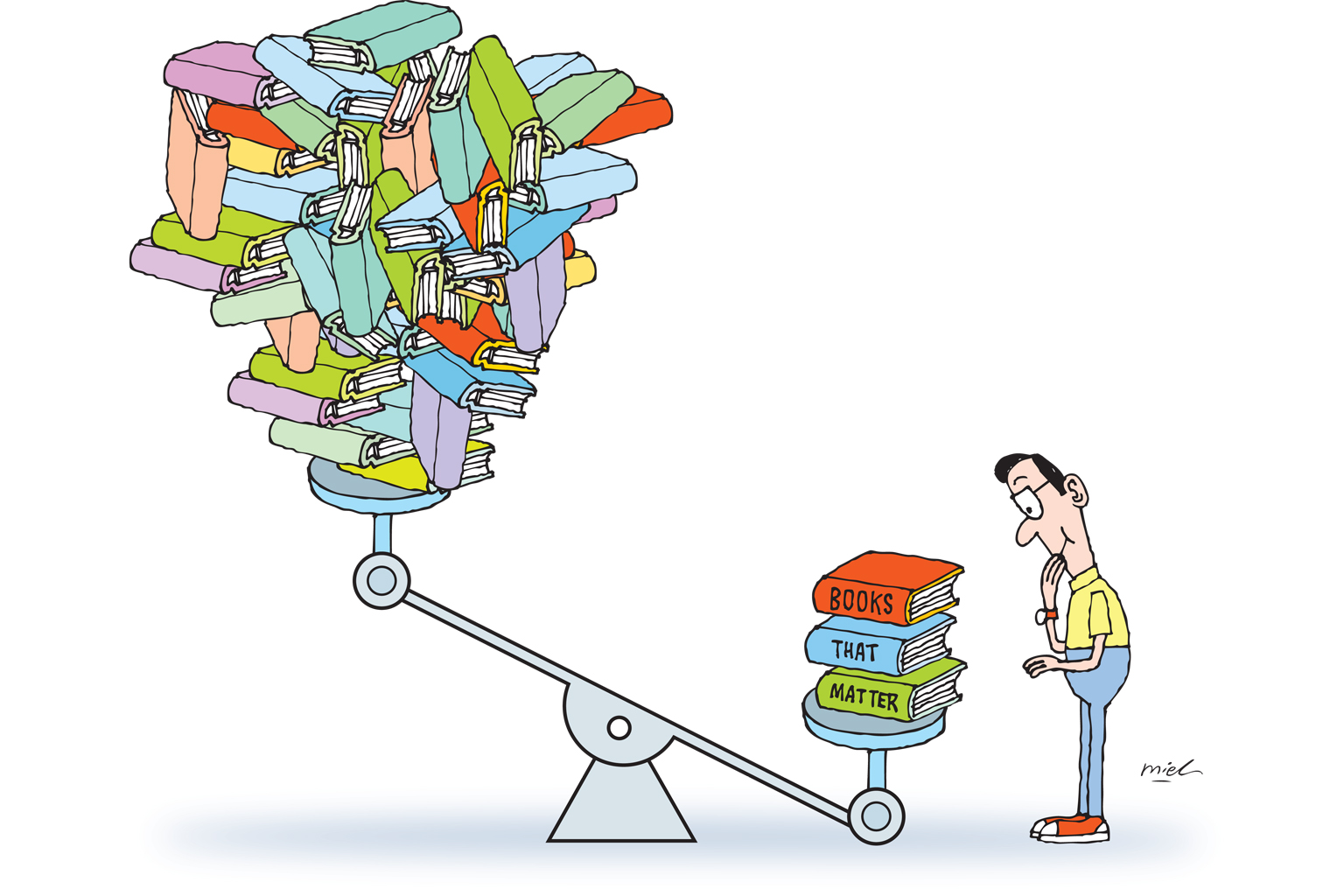Living
Books - more is often less and less is more
It is better to choose a small number of good books by good authors and study them intently, than to flit from book to book
Sign up now: Get ST's newsletters delivered to your inbox

ST ILLUSTRATION: MIEL
Gary Hayden
Follow topic:
When I was younger, I was keen on chess. I took it very seriously and was always looking to improve my game.
Being of a bookish disposition, I surrounded myself with chess books.
Books on openings, books on tactics, books on strategy, books on endgames, books about great players and their games, books on chess psychology.
Soon, I had so many books and spent so much time dipping first into one and then into another, that I ceased to learn anything of any real value from them.
Eventually, I realised that it is better to thoroughly digest the contents of one or two carefully chosen volumes than it is to romp through an entire bookshelf.
ST ILLUSTRATION: MIEL
I learnt that, as far as books are concerned, more is often less and less is often more.
TOO MANY AUTHORS
In recent weeks, I have been slowly but steadily acquainting myself with the Moral Letters To Lucilius, a collection of letters by the Roman philosopher Lucius Annaeus Seneca, ostensibly written to a younger friend.
In his second letter, entitled On Discursiveness In Reading, Seneca warns against reading too many books by too many authors.
He writes: "You must linger among a limited number of master thinkers and digest their works, if you would derive ideas which shall win firm hold in your mind.
"Everywhere means nowhere."
That certainly rings true in my experience.
I suppose that if you are reading purely for pleasure, there can be no harm in reading as widely and as superficially as you like.
But if you are reading because you want to increase your learning or to improve your understanding, then you have to adopt a more disciplined approach.
You have to resist the temptation to flit from book to book, like a butterfly among flowers in the meadows. You have to choose a small number of good books by good authors and study them intently.
Seneca writes: "When a person spends all his time in foreign travel, he ends by having many acquaintances, but no friends. And the same thing must hold true of men who seek intimate acquaintance with no single author, but visit them all in a hasty and hurried manner."
Of course, this is far more demanding - and not nearly so much fun as skipping from one book to another.
But when you have a serious purpose in your reading, there is no alternative but to adopt a serious attitude.
Seneca adds: "But, you reply, I wish to dip first into one book and then into another.
"I tell you that it is the sign of an over-nice appetite to toy with many dishes; for when they are manifold and varied, they cloy but do not nourish."
AN UNCEASING STREAM
Seneca was writing in the first century AD, more than 1,000 years before the invention of the printing press and way before the advent of the Internet.
So if what he said was valid back then, how much more valid is it now?
Today, on our computers and smartphones, we have access to a never-ending stream of words.
Millions and millions of new ones every day, many of them hastily written and ill thought-out.
It is fun and easy to dip into that stream. But if we want to learn anything of real and lasting value, we need to step outside the stream and explore stiller, deeper waters.
•Gary Hayden is a philosophy and science writer. His new book, Walking With Plato, is out at major bookshops here.

